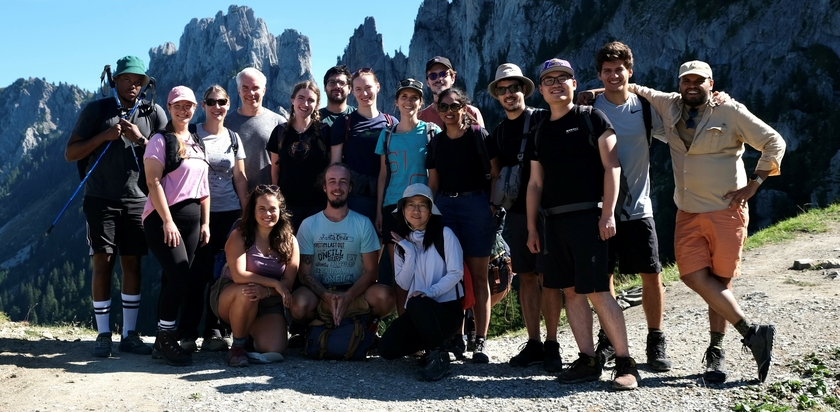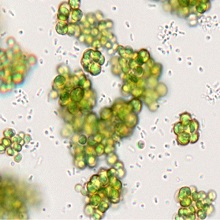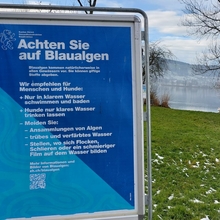Department Environmental Microbiology
Microbial Systems Ecology
The MSE group is co-lead by Dr. Olga Schubert and Prof. Martin Ackermann and is affiliated with Eawag and ETH Zurich.
Microbes are essential for the integrity of environmental ecosystems and may be harnessed to provide sustainable and scalable solutions to the challenges posed by climate change and environmental degradation. Our group's research aims at better understanding how microbes and microbiomes function in order to, for example, provide insights into microbial processes underlying the marine carbon cycle and inform the engineering of microbes or microbiomes to provide sustainable solutions, from wastewater treatment to plastic degradation and CO2 sequestration. We often focus first on understanding fundamental processes at the level of single cells and then ask how the behavior of individual microbes and interactions between them gives rise to the function of microbial communities and entire microbial ecosystems. In our studies, we use microfluidics-based live-cell imaging and a variety of omics methods including genomics, transcriptomics and proteomics and metabolomics. We furthermore use bioinformatics approaches as well as mathematical and computational modeling to gain further mechanistic insights and to conceptualize our findings. To connect our work to tangible solutions for concrete problems, we collaborate with environmental physicists, chemists and engineers. Our research is funded by the SNSF, Innosuisse and the Simons Foundation.
More information on our ongoing projects can be found on our group webite here.
For a full list of publications please visit Martin's and Olga's Google Scholar profiles.





![[Translate to English:] Prinzipien mikrobieller Ökosysteme](/fileadmin/_processed_/9/3/csm_PriME_MSE_Project_Teaser_63cb90c181.jpg)
